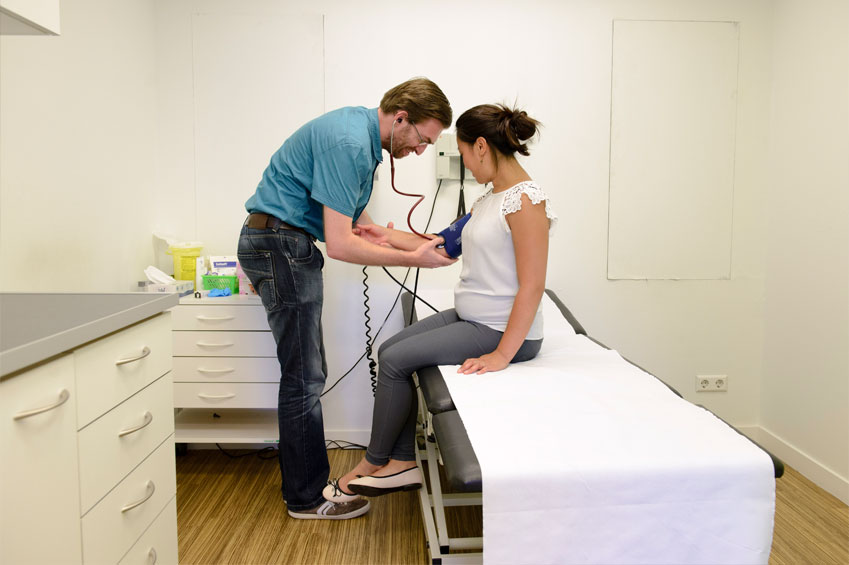The Netherlands harbours over 650,000 labour migrants. These mostly originate from Eastern Europe and practice economically vital professions in logistics, industry, agriculture and horticulture.
Covid infection
This group of internationals was hit hard during the first Covid wave last year. Due to their working and living conditions, the number of infections among them increased at an alarming rate. In response to this, the Ministry of Social Affairs and Employment (SZW), led by Emile Roemer, set up a Booster Team for the Protection of Labour Migrants.
At the end of 2020, this team offered a set of recommendations on the improvement of commuting and living conditions amongst labour migrants. One of these recommendations was aimed at the healthcare sector, urging it to make GPs more easily accessible to migrant workers.

GP not easily accessible
Many labour migrants do not have a General Practitioner. In many regions, the GP capacity is too limited to be able to register them. Besides this, labour migrants are often only in the region for a few months before moving on to work elsewhere. Registering with a GP often doesn’t appear worth the trouble.
In practice, therefore, labour migrants with medical complaints are likely to turn to their employer (often an employment agency) for help. The latter then tries to locate a GP able to spare the time and will drive the sick to a practice, sometimes over 100 kilometers away.
Research with health insurer HollandZorg
In 2019, H4i received funding from the province of Noord-Brabant to improve the care provided to internationals in the region. The decision to pay special attention to labour migrants was obvious.
H4i and HollandZorg, market leader in health insurance for labour migrants, combined forces and performed a study, executed by Wise up, amongst labour migrants, asking them for their experience with and need for healthcare.
Lack of confidence in the Dutch healthcare system
Fewer than half of the labour migrants surveyed has faith in the diagnosis and practice of Dutch physicians. Additionally, a mere 47% say they feel safe in the Dutch healthcare system. Finally, almost half of the respondents have no idea where to go if they suffer health issues.
Over half indicates not knowing where to find information about such things.
Of those who, nonetheless, visited a GP, the majority (70%) is positive about the contact. 60% is content with the diagnosis and treatment in retrospect.
Doctors, too, would like to see improvement
Additional research amongst GPs shows that they struggle to offer good care to labour migrants because they often do not know the patient or their medical history.
A medical file cannot be compiled for these ‘passers by’. In addition there are often language barriers, forcing an employer or another labour migrant to jump in as a translator.
Pilot project

H4i has partnered up with Arene online GP practice in Western Brabant in order to explore ways of improving ease of access to healthcare and information about healthcare in that region. Together with HollandZorg they have found a large number of employers in the region willing to partake in a pilot project titled ‘Hybrid care’.
Hybrid care is GP healthcare provided digitally (online), where possible, in combination with care in a physical practice when required. Besides this, the focus is on education and information provision. During the pilot, employers will refer their international employees to the ‘hybrid’ practice for healthcare.
The pilot will start in June. At the end of 2021 there will be an evaluation of the requirements of making hybrid care more widely available.
